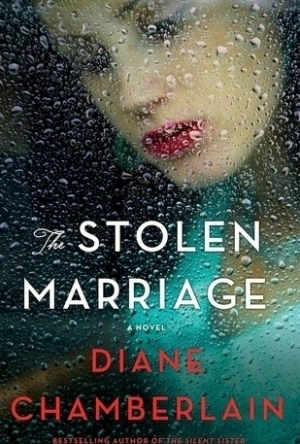Jessica - Where the Book Ends (15 KP) rated The Apocalypse of Elena Mendoza in Books
Jan 30, 2019
Hutchinson doesn’t take long to get into the action of the book and the pace doesn’t slow down until it’s over. In the beginning, we met Elena and she explains all about how she was born of a virgin birth. She works at Starbucks and on the day, she is going to finally talk to her crush Freddie everything goes downhill. See, Freddie gets shot by David Combs and Elena heals Freddie and saves her life. At the same time a beam of light comes down from the sky and David Combs disappears. Coincidence? I’ll never tell… You need to read the book to find out.
The characters were phenomenal and relatable. I don’t have anything directly in common with any of the characters, but I loved them so much. They were quirky, genuine, and loveable. The character development throughout the book helped to move the story along and unravel all the pieces. Each of the characters were critical to the story in their own way. They didn’t always seem like they were playing a roll, but it was mandatory for each of them to be there. Each character also learned a lesson which is amazing to see in YA fiction, as I feel it’s something that seems to be lacking lately.
Shaun David Hutchinson is an absolutely amazing writer and the way he weaves a story with the written word makes your want to curl up in his books and become one of his characters. His writing style is delightful, thought provoking, and engaging. I can’t wait to read more of his books and look forward to seeing what the future holds for such a talented individual.

Salon Appointment Manager
Business and Productivity
App
All professional, well-run salons provide their clients with exceptional quality and an organized,...
Lee (2222 KP) rated Knock Knock (2015) in Movies
Nov 2, 2017
Keanu Reeves is an architect, living in an amazing house with a beautiful wife and two perfect kids. The movie opens by slowly panning through the house, showing us that on literally every single piece of available wall space there's a photo of the happy family. They just look so perfect and content together. Keanu wakes up in bed with his wife and the kids burst in to bring Keanu a father's day chocolate cake. They have some fun and he chases them away, pretending to be monster. Wow, they really are determined to drum home the fact that Keanu has this perfect family life, something he'd be pretty stupid to mess up! Already though, the acting is just awful - the whole setup feels forced, none of it feels natural at all. A crucial plot point that we do discover here though - Keanus character has not had much action in the sack recently...
His wife and kids head off to the beach for the weekend leaving Keanu to try and get on top of his workload, designing some buildings, listening to loud music and 3D printing his work. That is, until he's interrupted late at night by a couple of young girls knocking at his front door. It's raining hard and they claim that their taxi dropped them off for a party, but they think that they're in completely the wrong area. Keanu lets them in to check the party location on his iPad (their phones are soaking wet) while he calls them an Uber. They begin flirting with him, but he resists. He ends up putting their clothes in the tumble dryer, the flirting continues, he continues to resist. Until eventually.... well, lets just say that he more than makes up for the action in the sack he's been missing out on recently.
All I'll say is that things get more intense and more ridiculous after that as the girls stick around and make his life a living hell, despite his attempts to try and get rid of them. It's all really over the top and just plain stupid, but I just had to watch it right to the end to see what happens. One thing it definitely proved though - Keanu Reeves really should stick to just being John Wick. Or Ted "Theodore" Logan.

Learn German: MosaLingua
Education and Travel
App
Learn German in no time! MosaLingua's effective and addictive teaching method will help you memorize...

Learn French - MosaLingua
Education and Travel
App
Learn French in no time! MosaLingua's effective and addictive teaching method will help you memorize...

Learn Spanish: MosaLingua
Education and Travel
App
***Learn Spanish in no time! MosaLingua's effective and addictive teaching method will help you...

SingTrue: Learn to sing in tune, pitch perfect
Music and Education
App
SingTrue can teach anybody to sing in perfect tune. Even if you think you're tone deaf! ~~ Selected...

I'll Tell You What...: My Take on the Modern Game of Football
Book
'A brilliant take on the modern game - Robbie tells it like it is' Rio Ferdinand Robbie Savage is...

The Stolen Marriage
Book
The Stolen Marriage is a compelling novel from Diane Chamberlain, the bestselling author of The...
Lyndsey Gollogly (2893 KP) rated Claimed (Brides of the Kindred #1) in Books
Sep 10, 2019
The Kindred are huge alien warriors—a race of genetic traders whose population is ninety-five percent male. After saving Earth from the threat of invasion they demand a reward—the right to find brides among the population. The chances of being chosen are about the same as those of winning the lottery—guess it’s just Liv’s lucky day.
Baird is a Beast Kindred who recently escaped imprisonment and torture at the hands of the malevolent Scourge. Through the torment and pain only one thing kept him sane—the thought of finding and claiming his bride—Olivia. His need to possess her is a burning intensity that threatens to consume them both.
Angry at having her future and her family taken away from her, Liv vows to fight back the only way she can—by resisting. She has one month on the Kindred Mothership with Baird—their claiming period. If she can keep from having bonding sex with him during that time, she can go home and get on with her life on Earth.
But Baird isn’t going to make it easy for her. Every week he is allowed to touch Liv more and more intimately and according to the contract she signed, she has to let him. She’s determined to resist him but his touch sets her on fire. And just as she thinks she knows what she wants, a twist of fate and an attack by the faceless Scourge AllFather changes everything…
<strong>It was ok</strong>
So I wasn't expecting becoming like it but it was actually ok. Think Black dagger brotherhood in space. Seemed a bit oh I've heard it before but it got better.I will be sticking with the series as I'm interested in where it will go.
⭐⭐⭐



